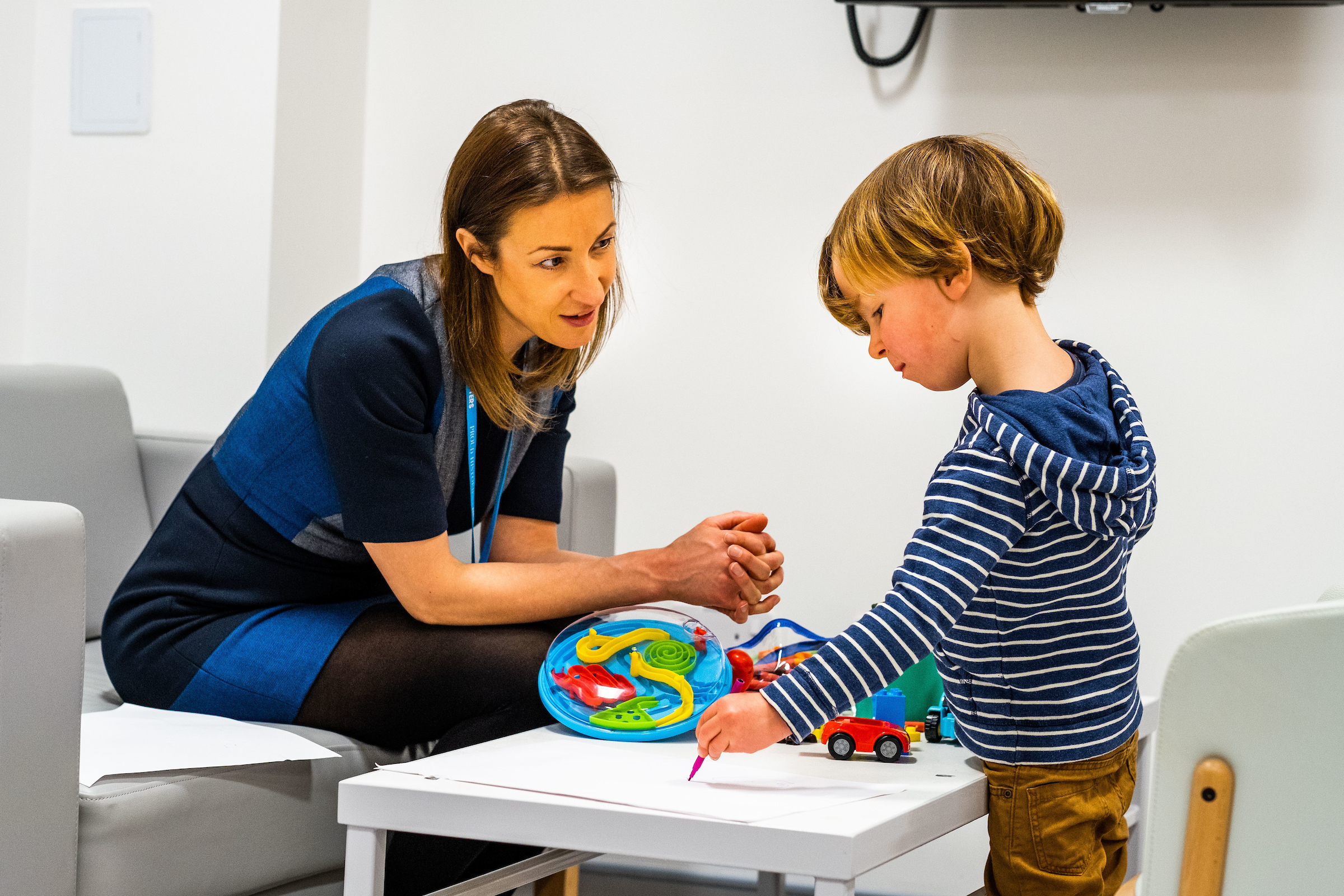Previous
Health play specialist
To become a health play assistant you'll need an HNC in Childhood Practice or an SVQ in Playwork. You’ll also need experience of working with young people or children.
Health play assistants supervise age-appropriate play activities for children in hospitals to reduce stress and anxiety. They also help with the everyday running of hospital play facilities.

School subjects that could lead to a career as a health play assistant include:
Speak to your guidance teacher or careers adviser about subjects offered at your school.

You may find it helpful to get some healthcare experience by doing a work placement or volunteering. You’ll get training, increase your knowledge, and learn new skills. This could help you when applying to college or a new job with NHSScotland.
To become a health play assistant, you’ll need one of the following qualifications:
You’ll also need experience working in a team caring for children and young people, preferably in a hospital setting.
As a health play assistant, you’ll organise and supervise therapeutic play and recreational activities in a child-focused environment. You’ll also support families and carers to make sure appropriate information is shared and individual patient needs are met.
On the ward, you’ll provide professional advice on play activities to the multidisciplinary team, including nurses, consultants, and physiotherapists.
Typical tasks for a health play assistant include:
As a health play assistant you'll need these skills:
You could work with:
You could work in a hospital ward or outpatient clinic.
You’ll be encouraged to develop your career in the NHS. As well as learning specific to your role, you'll need to complete mandatory training, including:
Your NHS employer will confirm their mandatory training requirements during your induction.
You must also be proactive in updating your knowledge and understanding of current research and best practice in:
You may have the chance to study for additional qualifications, including a foundation degree in Health Play Specialism. Earning new qualifications will help you when applying for more senior roles, such as:

Our pay and benefits structure aims to attract, retain, and develop a skilled workforce.
Pay and benefits
Our blog includes how-to guides, case studies, and career resources.
Discover more